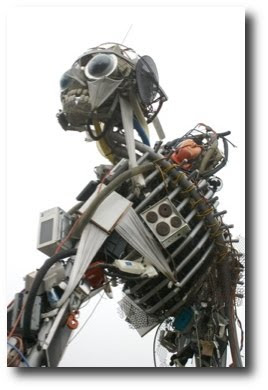The news item below is forwarded from the Global Health Council, which reports the mHealth Summit taking place this week in washington DC. It is especially good to see that Bill Gates is giving a keynote address. This suggests that the Gates Foundation may be poised to address the 15th Grand Challenge for Global Health, as proposed by international health leaders in The Lancet:
"The Gates Foundation identified fourteen challenges [Grand Challenges for Global Health] but a fifteenth challenge stares us plainly in the face: The 15th challenge is to ensure that everyone in the world can have access to clean, clear, knowledge - a basic human right, and a public health need as important as access to clean, clear, water, and much more easily achievable."Tikki Pang (WHO), Muir Gray (NHS, UK), and Tim Evans (WHO): 'A 15th grand challenge for global public health.' The Lancet 2006; 367:284-286.
http://www.thelancet.com/journals/lancet/article/PIIS0140673606680501/fulltext
When HIFA2015 was in planning back in 2006, the lead author of the above paper, Dr Tikki Pang (Director of Research policy and Cooperation at WHO) said: 'HIFA2015 is an ambitious goal but it can be achieved if all stakeholders work together'. Bill and Melinda Gates are critical stakeholders. I look forward to see Bill Gates' presentation. Will the Gates Foundation take up the 15th Challenge? Will the Gates Foundation prioritise the challenge of health information for all by 2015?
Bill Gates keynote yesterday is not yet available on the web, but it will be soon at: http://mhealthsummit.org/conference/live-webcast
I hope that Bill Gates will use this opportunity to articulate a clear and specific vision from the Gates Foundation: a vision of a world where people are no longer dying for lack of access to appropriate, reliable healthcare information. With their support, there is no doubt this vision can and will be realised.
With best wishes,
Neil
HIFA2015 profile: Neil Pakenham-Walsh is the coordinator of the HIFA2015 campaign and co-director of the Global Healthcare Information Network. He started his career as a hospital doctor in the UK, and has clinical experience in rural Ecuador and Peru. For the last 20 years he has been committed to improving the availability of healthcare information for health workers in developing countries. He has worked with the World Health Organization, the Wellcome Trust, Medicine Digest and INASP (International Network for the Availability of Scientific Publications). www.hifa2015.org neil.pakenham-walsh AT ghi-net.org
My source: www.hifa2015.org

